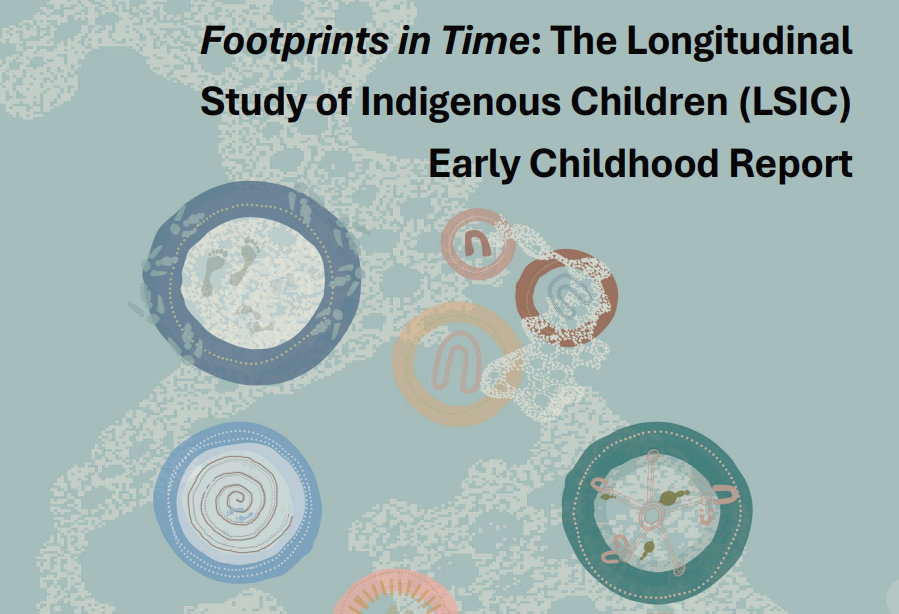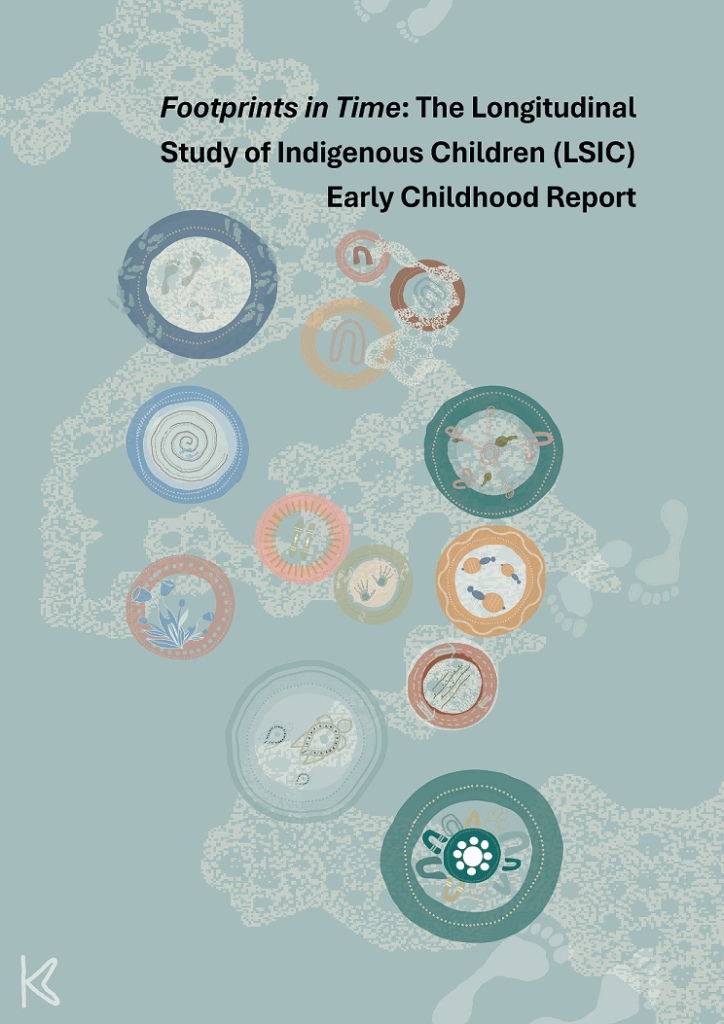
A recently released report is reshaping how we understand the early experiences that help Aboriginal and Torres Strait Islander children to thrive as they grow up.
Drawing on 14 years of data from more than 1700 children and their families, the report was led by QUT, with involvement from Flinders University researchers Associate Professor Stuart Ekberg and Tirritpa Ritchie from the College of Nursing and Health Sciences.

The Footprints in Time: Longitudinal Study of Indigenous Children (LSIC) Early Childhood Report, commissioned by the Australian Government Department of Social Services, highlights the critical role of early cultural connections, including ties to Country, language, and Mob, in shaping children’s wellbeing, identity, and academic success throughout their lives.
In undertaking the research, Tirritpa Ritchie (Kaurna) and Stuart Ekberg (Western Arrernte) developed a new method for using data to tell stories.
Recognising that stories are central to Aboriginal and Torres Strait Islander ways of knowing, being, and doing, they adapted existing Indigenous methodologies to work with large-scale data and identify common narratives.
“The stories we found in the data were overwhelmingly ones of strength,” says Associate Professor Ekberg.
“They show that children are stronger when they are connected to culture, Country, Mob, and language from an early age.”

The stories didn’t just offer insight; they guided the statistical analysis of the LSIC data.
When researchers followed the leads suggested by these narratives, they found strong evidence that early cultural engagement is associated with higher levels of social and emotional wellbeing through childhood and into adolescence.
The report also reveals that children who participated in cultural activities, such as attending Indigenous events, learning traditional arts, or speaking an Indigenous language, demonstrated greater resilience, confidence, and stronger relationships.
These findings were consistent across urban, regional, and remote communities, though access to cultural opportunities varied significantly.
Associate Professor Ekberg and Ritchie say this work is about more than data, it’s about ensuring that Indigenous perspectives shape the research that affects their communities.
“Listening to stories of strength tells us what should be prioritised in research with Aboriginal and Torres Strait Islander peoples,” says Ritchie.
“It also shows how research can have a real impact in communities, educators, and policymakers.”
Associate Professor Stuart Ekberg and Tirritpa Ritchie will present the findings in an upcoming webinar for Family and Relationship Services Australia on Tuesday 25 November from 12:00-12:45pm (ACDT).
You can read the full report here and an associated article in The Conversation here.

